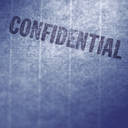Daniel J Toal

April 08, 2011 | Legaltech News
Broad Federal Court Powers Under Evidence Rule 502(d)Federal judges can and will make use of protective orders to shield litigants from waiving privilege if they inadvertently produce privileged documents -- and the high cost of production and the volume of ESI militates in favor of entering an order. In two recent cases, nonwaiver agreements arose only after a series of other discovery disputes.
By H. Christopher Boehning and Daniel J. Toal
13 minute read

August 28, 2007 | New York Law Journal
Lines Blur Between Business, Personal DataH. Christopher Boehning and Daniel J. Toal, partners at Paul, Weiss, Rifkind, Wharton & Garrison, write that a recent survey revealed that 33 percent of employees use personal e-mail accounts at least once or twice weekly for business purposes, and that 17 percent do so daily. Unfortunately, doing so may expose the employee's personal e-mail account and home computer to discovery in litigation.
By H. Christopher Boehning and Daniel J. Toal
13 minute read

August 03, 2010 | New York Law Journal
Litigants Fail to Heed Lessons of 'Victor Stanley'In their Federal E-Discovery column, H. Christopher Boehning and Daniel J. Toal, partners at Paul, Weiss, Rifkind, Wharton & Garrison, write: For the benefit of those counsel who missed Magistrate Judge Grimm's warning in Victor Stanley concerning the need to conduct quality control sampling on their keyword search terms, the recent decision in Mt. Hawley Insurance Co. v. Felman Production Inc. states it loud and clear: counsel who fail to apply such quality controls when conducting ESI production and privilege screening invite the risk of involuntarily waiving privilege.
By H. Christopher Boehning and Daniel J. Toal
13 minute read

June 01, 2010 | New York Law Journal
Final 'Qualcomm' Opinion May Be Just a One-Time PassH. Christopher Boehning and Daniel J. Toal, partners at Paul, Weiss, Rifkind, Wharton & Garrison, write that in the most recent (and final) chapter in the Qualcomm Inc. v. Broadcom Corp. saga, the same magistrate judge who sanctioned the six outside counsel in 2008, after another blistering critique of their e-discovery conduct, declined to impose such sanctions again. But those who might be tempted to rely on this latest ruling as establishing a standard for sanctions that will hold up in future cases do so at their peril.
By H. Christopher Boehning and Daniel J. Toal
8 minute read

August 31, 2007 | Law.com
Caution: Private E-Mails Might Turn PublicRecent headlines highlight the vanishing line between professional and private e-mail accounts. Attorneys are likely to face an increasing number of requests for access to any business-related e-mail on the employee's home computer and online e-mail account.
By By H. Christopher Boehning and Daniel J. Toal
13 minute read
October 25, 2007 | Law.com
Overcoming Evidentiary HurdlesIn a recent case, neither party made any effort to authenticate the e-mails relied upon in their motions for summary judgment. Nor did they consider any of the hearsay issues raised by these e-mails. This utter disregard for these evidentiary issues prompted the magistrate judge to issue a lengthy opinion that reads as part cautionary tale and part primer on evidentiary issues related to e-discovery.
By H. Christopher Boehning and Daniel J. Toal
13 minute read

June 09, 2011 | Legaltech News
How Early Does the Duty to Preserve Arise in Litigation?In concurrent opinions on a high-profile accusation of spoliation, the U.S. Court of Appeals for the Federal Circuit addressed whether a plaintiff's destruction of documents prior to litigation warranted the ultimate sanction of dismissal. Central to both cases was a question vexing for courts and litigants alike during e-discovery: When does the duty to preserve evidence arise?
By H. Christopher Boehning and Daniel J. Toal
12 minute read

December 23, 2009 | Legaltech News
Ruling Gives Guidance on Native ProductionFor those still confused by the production of electronically stored information in native file format, new rulings indicate a consistent body of guidance is developing. Attorneys H. Christopher Boehning and Daniel J. Toal examine the lessons offered by a recent federal decision.
By H. Christopher Boehning and Daniel J.Toal
15 minute read

February 27, 2007 | New York Law Journal
Hard-Learned LessonsH. Christopher Boehning and Daniel J. Toal, partners at Paul, Weiss, Rifkind, Wharton & Garrison, write that with the long-anticipated revisions to the Federal Rules of Civil Procedure having only recently come into effect, the sense of uncertainty that has historically surrounded electronic discovery promises to linger.
By H. Christopher Boehning and Daniel J. Toal
11 minute read

October 23, 2007 | New York Law Journal
Overcoming Evidentiary HurdlesH. Christopher Boehning and Daniel J. Toal, partners at Paul Weiss, Rifkind, Wharton & Garrison, review a recent case in which neither party made any effort to authenticate the e-mails relied upon in their motions for summary judgment. Nor did they consider any of the hearsay issues raised by these e-mails. This utter disregard for these evidentiary issues prompted the magistrate judge to issue a lengthy opinion that reads as part cautionary tale and part primer on evidentiary issues related to e-discovery.
By H. Christopher Boehning and Daniel J. Toal
13 minute read
Trending Stories
- 1Gibson Dunn Sued By Crypto Client After Lateral Hire Causes Conflict of Interest
- 2Trump's Solicitor General Expected to 'Flip' Prelogar's Positions at Supreme Court
- 3Pharmacy Lawyers See Promise in NY Regulator's Curbs on PBM Industry
- 4Outgoing USPTO Director Kathi Vidal: ‘We All Want the Country to Be in a Better Place’
- 5Supreme Court Will Review Constitutionality Of FCC's Universal Service Fund
More from ALM
- Legal Speak at General Counsel Conference East 2024: Match Group's Katie Dugan & Herrick's Carol Goodman 1 minute read
- Legal Speak at General Counsel Conference East 2024: Eric Wall, Executive VP, Syllo 1 minute read
- Legal Speak at General Counsel Conference East 2024: Virginia Griffith, Director of Business Development at OutsideGC 1 minute read



